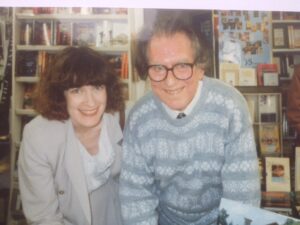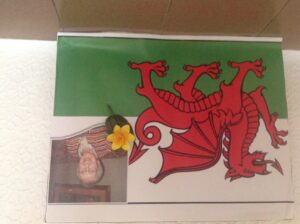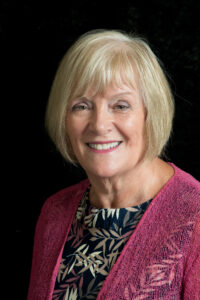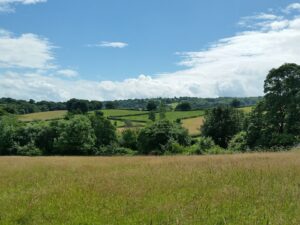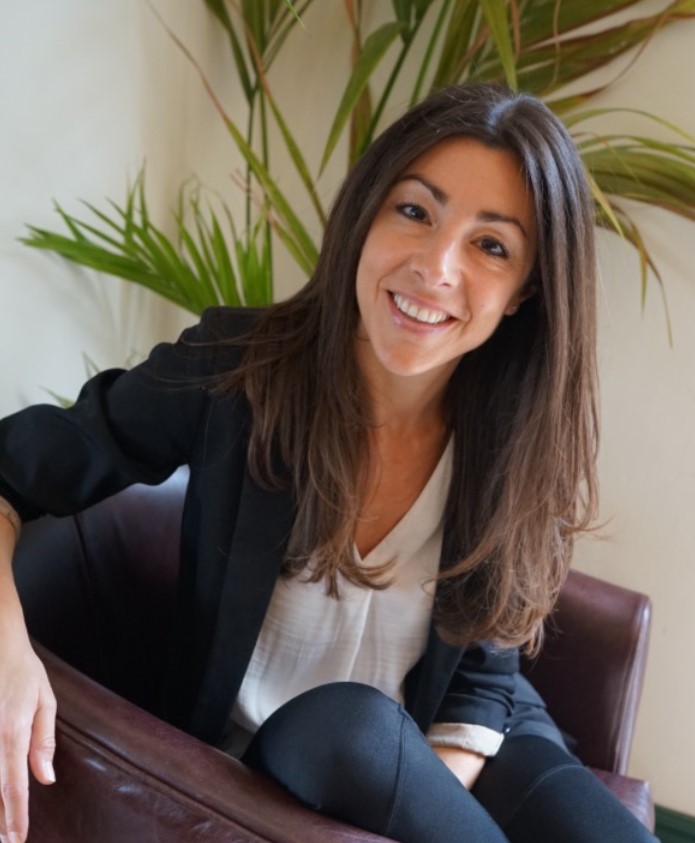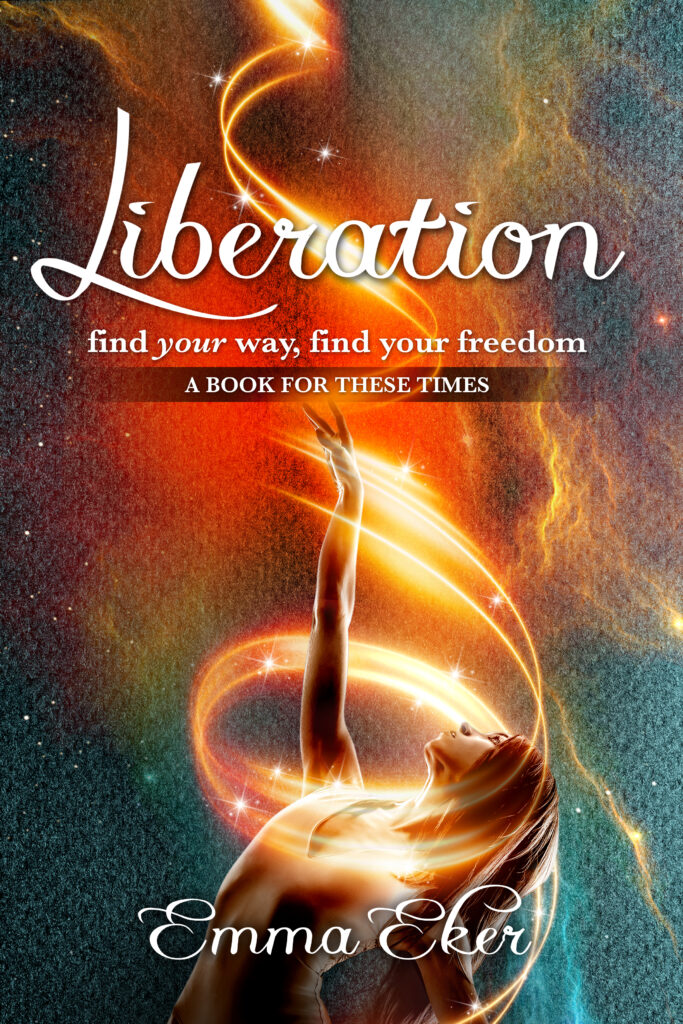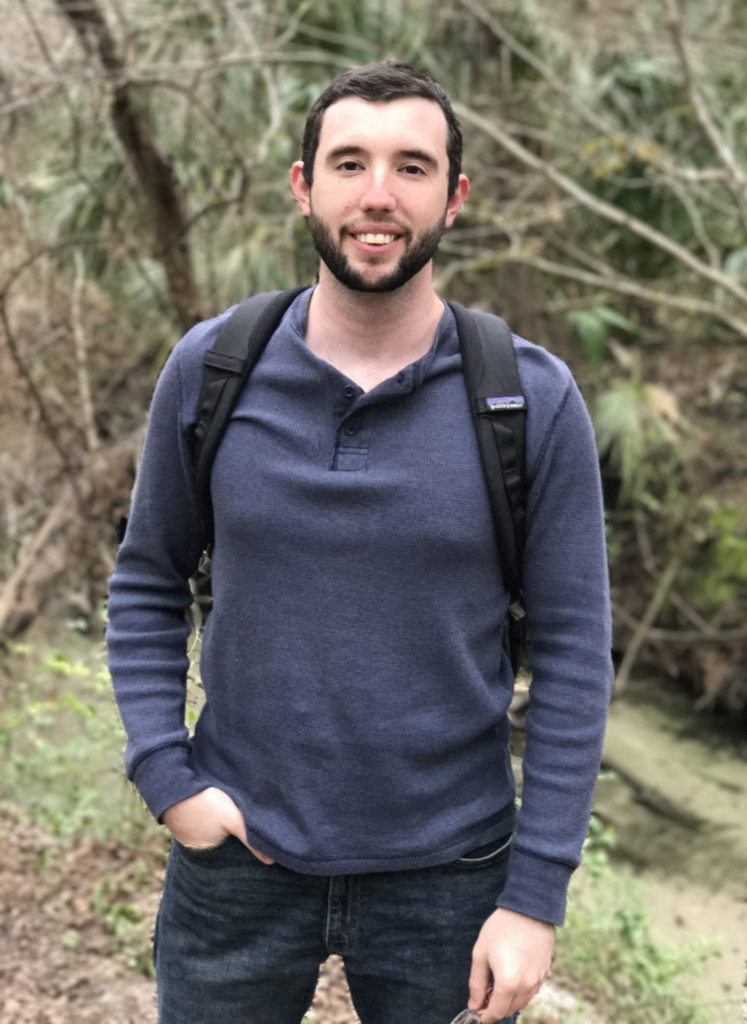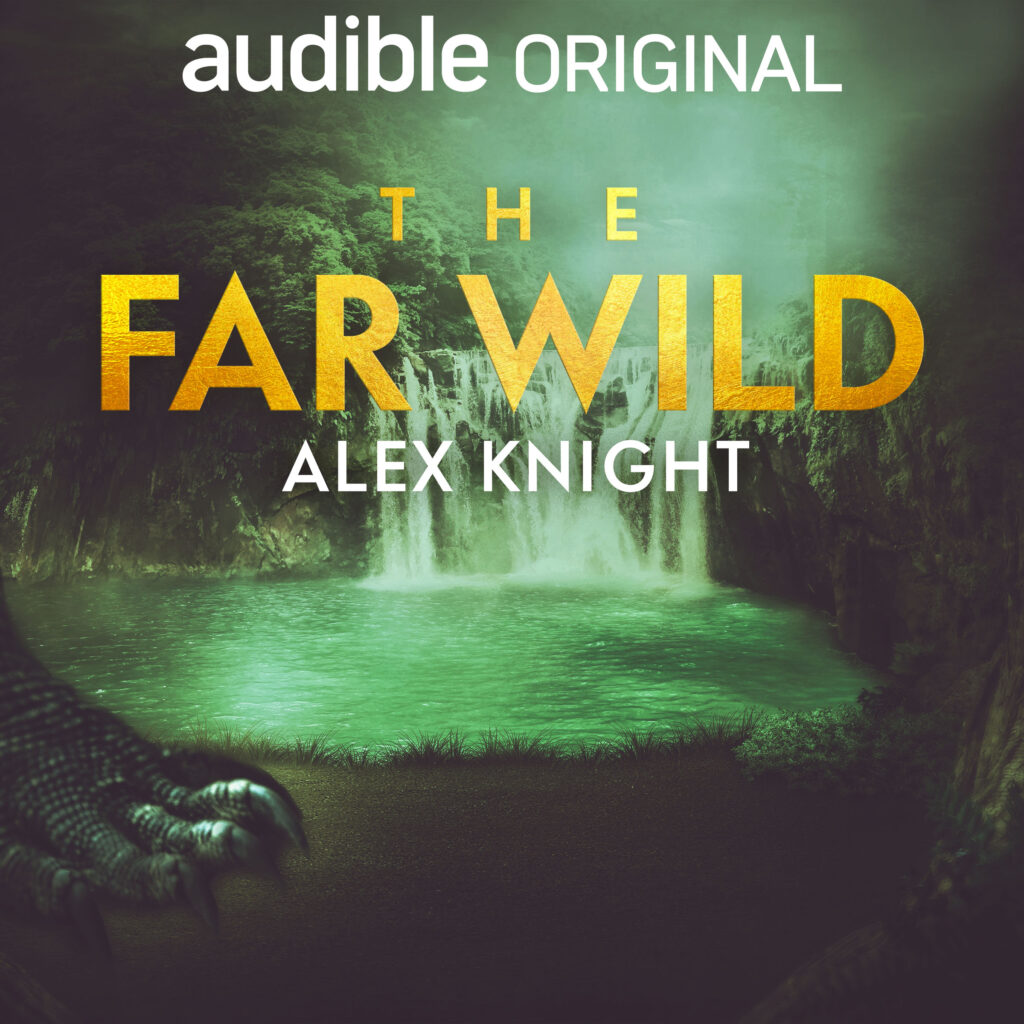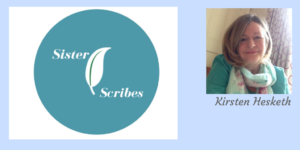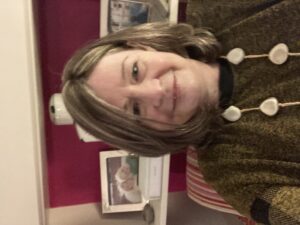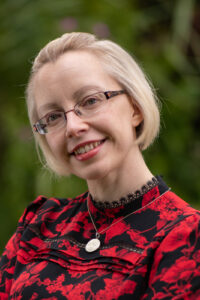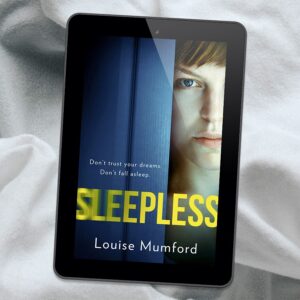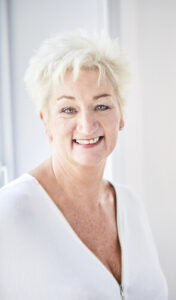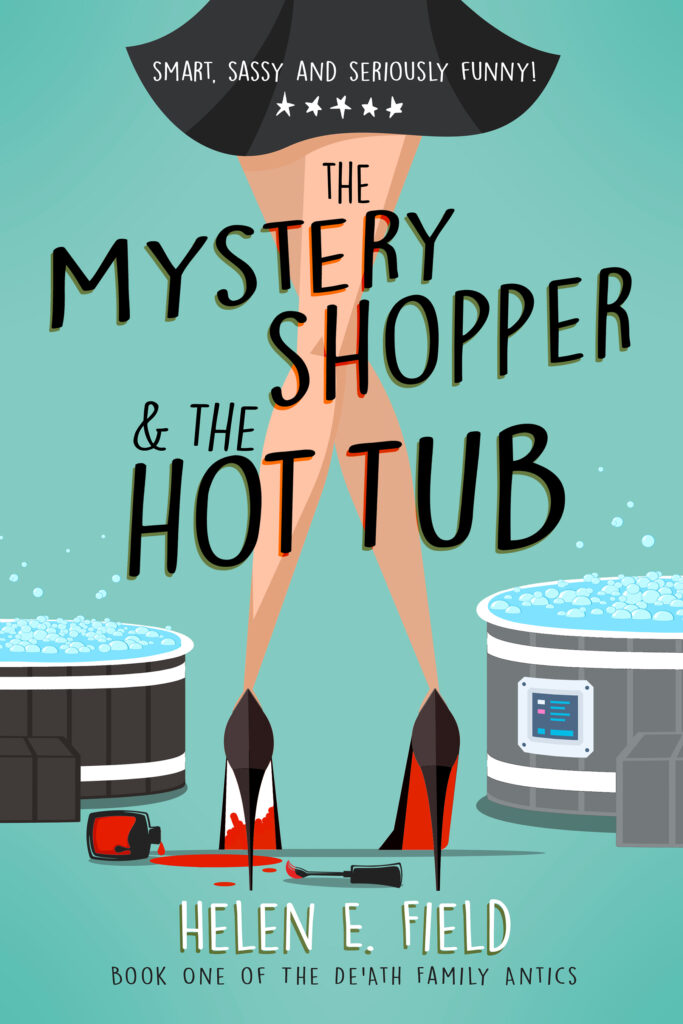 My mother once told me that when I was 10yrs old I informed her I was not going to have a ‘boring life.’ Well, I guess I must have succeeded because according to most people I know, I have led a very interesting life. Important for a writer I think. To me, I’ve just lived it exactly how I wanted – a free spirit if you will. ‘work hard, play hard’ could well be my motto. I started writing funny poems about all my classmates at school from the age of ten and I haven’t stopped writing them ever since. I have a business writing bespoke funny poems for and about people and I used my ability to write these funny poems to publish a range of greetings cards. I also began a journal at ten and nearly 50 years later I am still writing it – I have an old sea chest full of them! At school I was often picked out by my English teacher to stand up in front of the class and read the essay I had written; the one that I recall even now, was entitled ‘The Goldfish Who Could Speak.’ The class were in stitches!
My mother once told me that when I was 10yrs old I informed her I was not going to have a ‘boring life.’ Well, I guess I must have succeeded because according to most people I know, I have led a very interesting life. Important for a writer I think. To me, I’ve just lived it exactly how I wanted – a free spirit if you will. ‘work hard, play hard’ could well be my motto. I started writing funny poems about all my classmates at school from the age of ten and I haven’t stopped writing them ever since. I have a business writing bespoke funny poems for and about people and I used my ability to write these funny poems to publish a range of greetings cards. I also began a journal at ten and nearly 50 years later I am still writing it – I have an old sea chest full of them! At school I was often picked out by my English teacher to stand up in front of the class and read the essay I had written; the one that I recall even now, was entitled ‘The Goldfish Who Could Speak.’ The class were in stitches!
I left school at sixteen and worked in retailing and hospitality. I started my own hospitality training consultancy in 1998, training managers and staff all over the UK, Europe and USA and speaking at conferences. One strand of the business was to design and implement mystery shopper programmes. It was the trigger for my debut novel ‘The Mystery Shopper & The Hot Tub.’
I have three incredibly talented grown-up children and a saintly husband! Pre-Covid, we embarked on some serious travelling around the world – clearly curtailed for the past ten months but we’ll be off again as soon as we are permitted!
What you have written, past and present.
I have had numerous professional articles published in various hospitality publications over the years. One article in particular when published was deemed ‘an important academic paper’ which thrilled me, given I’d never gone to university. I wrote the entire article in one hit of 8,000 words in one evening and they didn’t change a single word!
I completed The Mystery Shopper & The Hot Tub last Autumn and am currently writing the second book in the series, which I hope will be out by late Spring.
What you are promoting now.
I am promoting my debut novel The Mystery Shopper & The Hot Tub, for which I also wrote a free download called ‘The Big Dilemma’ that readers can access at the end of the book. It is women’s humorous fiction. I would say that you have to have a sense of humour and not be overly politically correct to enjoy it!
I do not have social media – my choice – which makes promoting a bit more challenging. I’m a face-to-face kinda gal and would much prefer to talk about the book in person or on the radio, but Covid has put a stop to that.
A bit about your process of writing.
I don’t honestly think I have a process. I just write when I feel like it for as long as I want to. When I’m really in the flow, I can write for hours at a time without stopping. If I don’t feel like it, I don’t write. It’s pointless. When both my brothers were diagnosed with prostate cancer and my mother developed Alzheimer’s all in the same year, I was very flat and exhausted. I just couldn’t write ‘funny’, so I left my manuscript for a year and went back to it, when I felt more in control of things.
Do you plan or just write?
I would say I was more of a ‘seat of the pants’ writer. The only thing I could remotely describe as planning, is that I decide what I want the ending to be and kind of work out how to get there! My stories are very visual – a number of readers commented that they thought the book would make a great TV/film. I often think of ‘scenes’ that I know I want to include – particularly the mystery shopping assignments, which have been based on real life assignments that I have actually done myself or been de-briefed about by an assessor. They are very funny, not least because they have actually happened.
What about word count?
I never even considered word count when I started writing my first book. I literally just wrote it exactly as I wanted. When I finished it was around 120,000 words. I discovered afterwards that that was a lot of words for a book of my genre. I had to do some ruthless editing that made me weep as I removed whole chapters and chunks of writing to get it down – even now it’s around 105,000 and 443 pages long.
This has provided me with a problem I hadn’t anticipated.The print cost of a book of this size is significant, but to sell at a price similar to ‘competing’ novels I will be making very little money indeed on paperbacks.
Big lesson for me for book number two – keep an eye on word count!
How do you do your structure?
I am a story teller and I think my book reflects that. I never sat down and thought ‘how am I going to structure this novel?’ I just wrote the story it as it came to me. I would get to the end of a section and think, OK so what would be really funny to happen now? Then I wrote it. On editing, I made a few changes if I thought that the flow of the story wasn’t quite right, but really nothing major.
What do you find hard about writing?
I really don’t find anything about writing hard. I genuinely don’t understand writers who say they sit at their laptops struggling to get words out. I write so prolifically and easily it’s a mystery to me.
What do you love about writing?
I love making up stories. It’s a bit like being a child again I suppose. In the real world we can’t pretend, but in stories you can create whatever crazy characters and wild incidents you like. It’s like creating escapism for yourself and for others to enjoy and I do like making people laugh.
Advice for other writers.
My genuine advice to other writers is likely to get me into trouble from the many organisations that offer writing courses, advice, manuscript assessment etc etc. It is easy to forget that it is in all these people’s financial interests to tell you your writing isn’t good enough. For me there is only one group of people who have the authority to tell me that and that’s my readers. No-one else matters.
I can truthfully say that if I had read all the articles and advice about how to write before I started my book, I would never have written it. I would have been paralysed by indecision over absolutely everything. Never in my life have I come across such contradictions, nonsense rules, imposition of politically correct notions or subjectivity, in an industry. This became the main reason I decided to go down the self-published route.
I came across a quote many years ago, which I had printed on cards and gave them to my children as a good rule to live their lives by. It’s not a bad one for writers either.
“It had long since come to my attention that people of accomplishment rarely sat back and let things happen to them. They went out and happened to things.”
Leonardo da Vinci
The Mystery Shopper & The Hot Tub is out on the 14th of January and is available from amazon.co.uk
 I have been writing for Frost for so long I tend to assume everyone knows who I am, but common sense tells me that isn’t the case. Our readership is growing all the time, so many won’t have the first clue about why the Contributing Editor blathers on so endlessly about writing and books. And. this year, about Welsh writing in particular.
I have been writing for Frost for so long I tend to assume everyone knows who I am, but common sense tells me that isn’t the case. Our readership is growing all the time, so many won’t have the first clue about why the Contributing Editor blathers on so endlessly about writing and books. And. this year, about Welsh writing in particular.
